'Elbit 8': Palestine Action activists win legal fight for disrupting Israeli arms trade
By Reza Javadi
In a significant development, a group of Palestine Action activists, known as the 'Elbit Eight', have been acquitted for their role in shutting down UK Elbit Systems, Israel’s largest arms producer, whose lethal weapons are being used against Palestinians in the Gaza Strip.
Elbit Systems' weaponry prompted the Palestine Action activists to face a total of 12 charges, including criminal damage, burglary, blackmail, and encouraging criminal damage.
The charges were related to anti-Israel protests held between July 2020 and January 2021, immediately after the pro-Palestinian network was founded in early 2020.
The trial, which commenced on November 13, saw the Crown Prosecution Service (CPS) amending the indictment, eventually bringing thirteen counts against the activists: seven counts of damaging property (criminal damage), three counts of burglary with intent to commit criminal damage, one count of possessing articles with intent to damage property, one count of threatening to damage property, and one count of encouraging others to commit the offense of criminal damage.
Since the group’s inception in 2020, and in protest against the Israeli regime’s atrocities against the Palestinians, they have led several mobilizations in the UK as well as in the US, targeting the factories and offices of firms that supply munitions used in Israel’s occupation of Palestine.
Their protest methods have included sit-ins, blockades and paint jobs.
The group's actions, including occupying Elbit Systems' drone and weaponry factories in Shenstone and Oldham, aimed to challenge Elbit's operations in Britain and prevent the manufacturing of weapons destined for the Israeli regime.
The defense case
At the beginning of the trial that lasted six weeks, the eight activists received a plea deal: if Huda Ammori and Richard Barnard pleaded guilty, others would be acquitted.
Rejecting the plea deal, the activists spent six weeks in Snaresbrook Crown Court pleading not guilty, asserting that Elbit and Israel bear responsibility for the offenses, not Palestine Action.
Echoing the defense's narrative presented during the trial, Richard Barnard, co-founder of Palestine Action, underscored the group's primary goal to terminate British complicity in the Israeli apartheid regime’s crimes against Palestinians.
Barnard was convicted by a 10-2 majority of one count of criminal damage, for an action at the now-closed Elbit Ferranti factory in Oldham. The jury failed to reach a majority decision regarding the remaining 23 charges.
“The idea was – and the idea still is – to end the British complicity in the Israeli apartheid regime,” he told the jury. “I am trying to prevent war crimes … I am trying to stop bombings and trying to stop drones [in Palestine].”
Meanwhile, two of the Elbit Eight activists, Genevieve Scherer and Jocelyn Cooney, were unanimously acquitted on all charges faced.
Other activists highlighted their personal experiences and the urgency driving their direct actions, contending that conventional means, such as divestment campaigns, were insufficient in addressing the ongoing human rights violations in Gaza.
Huda Ammori, charged with six counts including damaging property and burglary, stressed her Palestinian-Iraqi background, narrating formative experiences such as the Iraq War and the ongoing ethnic cleansing of native Palestinians in Gaza.
She stressed that direct action was the only viable solution to end such atrocities perpetrated by the occupying regime, given the ineffectiveness of legal avenues and divestment campaigns.
“All other attempts fell short. Our exports to Israel are against our own license rules and against international law, but they can’t be stopped by the courts,” Ammori said.
“Divestment campaigns, after years of work, were taking way too long; it wasn’t matching the reality of the urgency of the situation. Every day, Palestinians were being killed, imprisoned – surveilled under these drones 24/7.”
Direction action is the only option
Ammori, a co-founder of the Palestine Action network, hastened to add that if the UK government continues to ignore facts and violate rules, then the only option is “direct action”, which means to “stop weapons from going there.”
“After pushing back our case for two years, the state has failed again to deter an ever-growing global direct-action movement. Every day we’ve been on trial, more Palestinians have been massacred using Elbit’s weaponry,” she asserted.
“The duty of the people is clear – to take all direct action possible to Shut Elbit Down wherever you are. Justice will be complete when Palestine is free.”
Robin Refualu, another activist of the group, charged with burglary and damaging the drone factory UAV Engines, shared his experiences from Palestine and spoke of the direct action he was involved in there to stop home demolitions and illegal settlements and emphasizing the trial's relevance to the broader Palestinian struggle over the past 75 years.
“This trial is not about us, it’s not even about Palestine Action, in my opinion,” Refualu said. “It’s about what’s happening in Gaza at the moment and what’s been happening in Palestine for the last 75 years.”
Genevieve Scherer, drawing on her upbringing in Uganda, criticized the futility of criminal damage charges when Elbit Systems and those they arm cause havoc in Gaza.
She underscored how British law prioritizes property over human lives.
Caroline Brouard emphasized the obligation to prevent an ongoing genocide and stated that when governments fail to uphold duties, it falls on the people to act. She believed that actions at UAV Engines in Shenstone could immediately impact stopping bombings in Gaza.
“The drones malfunction all the time, needing replacement parts, and UAV Engines has a 24hr dispatch policy – we stopped these engines getting to Israel and so stopped the drones from flying,” Brouard asserted.
Urgency of stopping crimes
Jocelyn Cooney, a frontline social worker, joined Palestine Action to address the urgency of stopping crimes. She referred to Elbit Systems as the "muscle" enabling genocide in Palestine.
“So I think we all have a responsibility as humans to step up and take direct action to stop this company from producing weapons to murder people,” she said.
Emily Arnott, charged with damaging property and burglary, spoke about her time in Palestine, highlighting the impact of apartheid and the Israeli regime's brutal domination over Palestinian lives.
Nicola Stickells, charged with criminal damage, emphasized the necessity of action when other efforts were ineffective. She pointed to ongoing war crimes in Gaza and questioned why activists faced legal consequences while those responsible for genocide profited freely.
The Israeli regime forces are “rounding up men.. and taking them to undisclosed places, stripped, kneeling blindfolded, this genocide is occurring as we speak,” said Stickells, a mother of two who was raised in a working-class family in the English county of Kent.
“How can we be the criminals when the perpetrators of… [what] we now know is a genocide … are free to profit and we have to spend weeks and weeks in court for an action that we took three years ago?” she asked.
“When you try and stand for human rights, you become the criminal. This is not right.”
Palestine Action UK has escalated actions against Elbit Systems since October 7, including activists climbing factory roofs in various cities.
“Palestine Action activists occupy the roof of the Israeli weapons factory Elbit Systems in the town of Shenstone, England, in protest of its production of equipment used in Israel's murder of innocent Palestinians,” Palestine Action UK said in a statement on October 31.
UK complicity in Israeli crimes
The trial comes on the heels of nationwide protests in the UK in solidarity with the Palestinian people and against the genocide in Gaza. These demonstrations have been met with intensive state monitoring, harassment, and muzzling of pro-Palestinian voices and actions.
The trial also draws attention to the broader issue of the UK's arms sales to the Israeli regime, given Elbit Systems' significant role as a major supplier to the Israeli military.
The weapons company is Israel's largest private arms company in the UK that supplies the Israeli military with 85 percent of the drones used against Palestinians. The British government has been criticized for being “complicit in Israeli crimes” due to its relations with this company.
Two of Israel’s biggest weapons factories, Elbit and Rafael, both have operations in the UK.
Declassified UK recently revealed that the British government has approved at least £472m in arms sales to the Israeli regime in the past eight years, ignoring the genocide in Gaza and the occupied West Bank.
'This is cruelty, not war,' Pope Francis slams Israel's brutality against Gaza children
IRGC intelligence forces bust Takfiri terrorist team in western Iran
Syria’s de facto new ruler names Asaad al-Shibani as foreign minister
How 8-year-old Lebanese child Fawaz nixed Ben Gurion’s 76-year-old fallacy
VIDEO | 700,000 Cubans rally at US embassy in Havana against trade embargo
Iranian embassy staffer assassinated by terrorists in Damascus
VIDEO | Press TV's News Headlines
Scandalous detention of Iranians by US to extort information



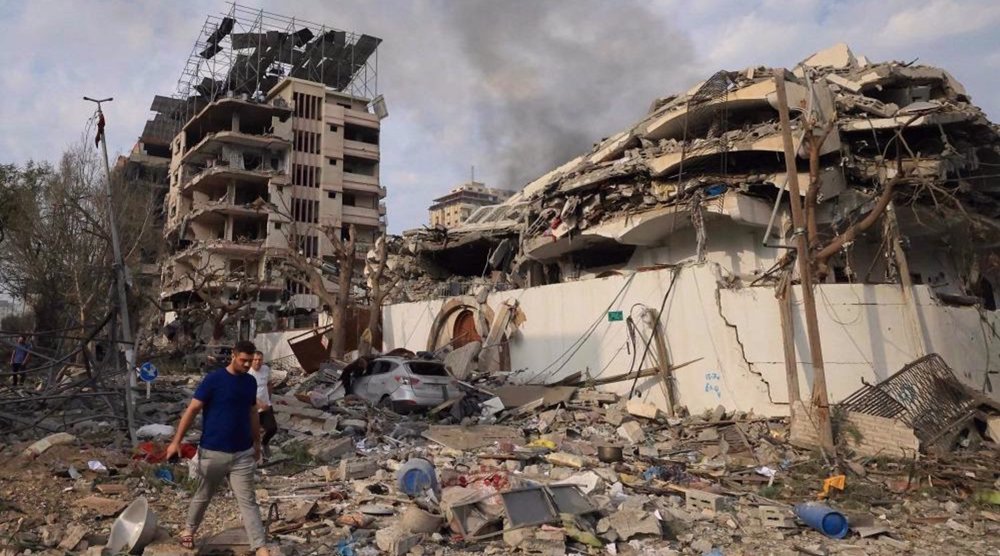


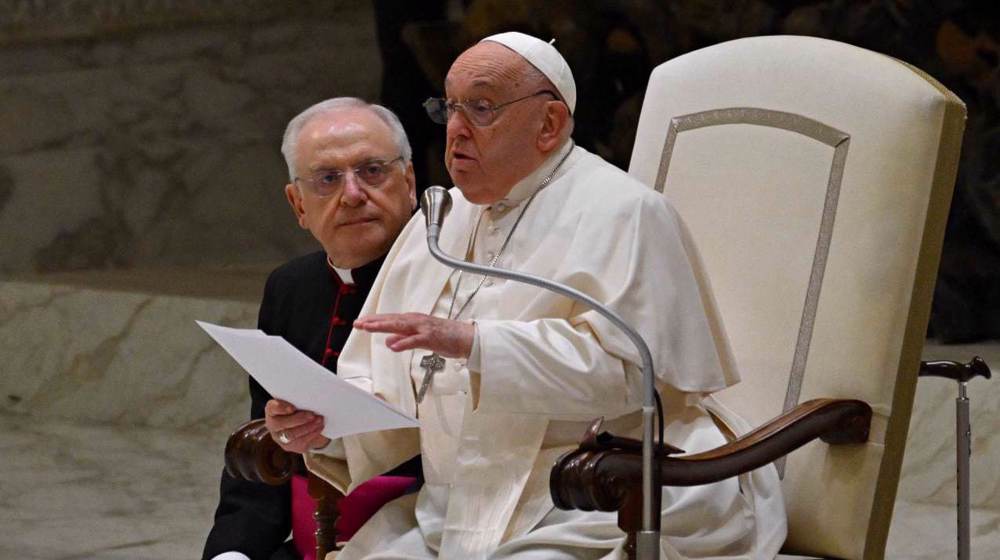





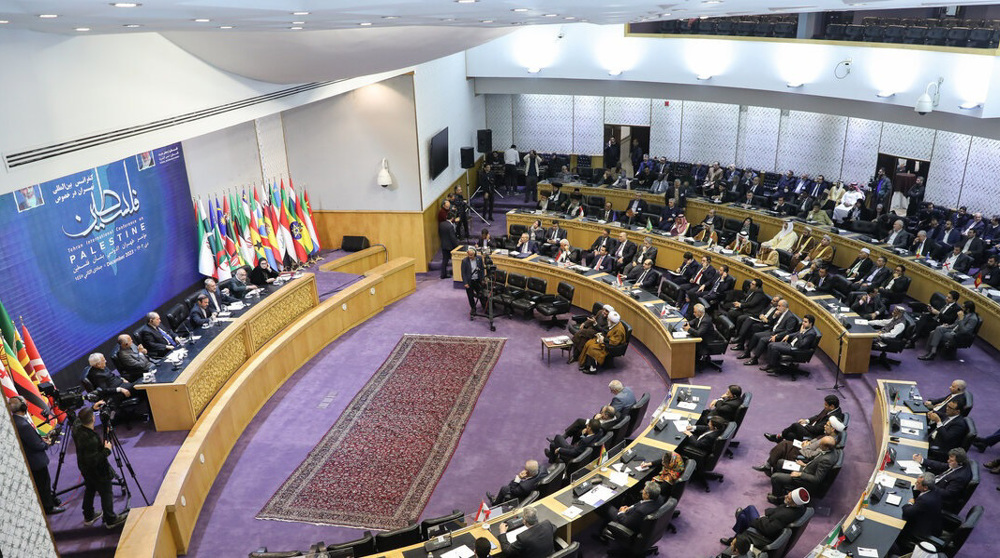

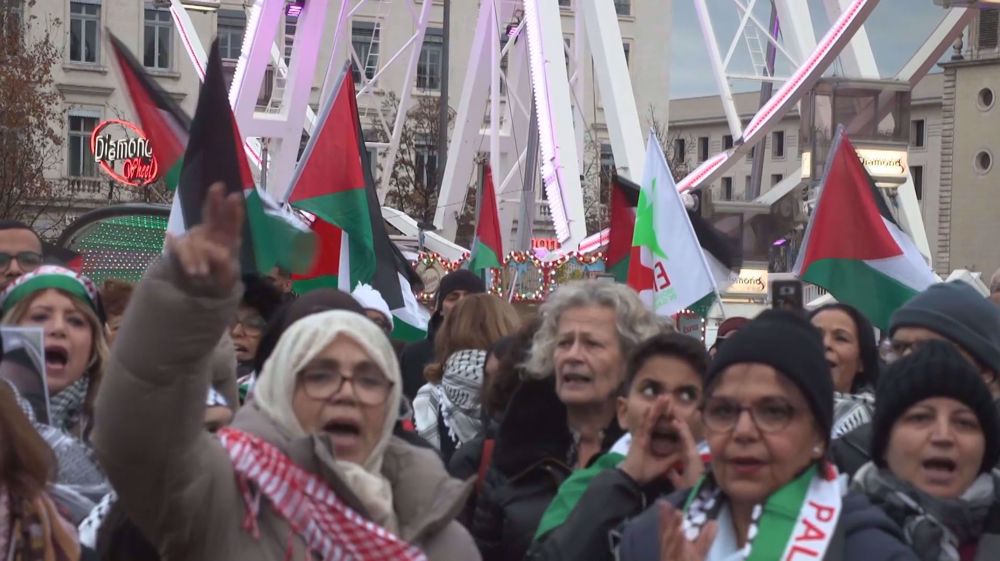
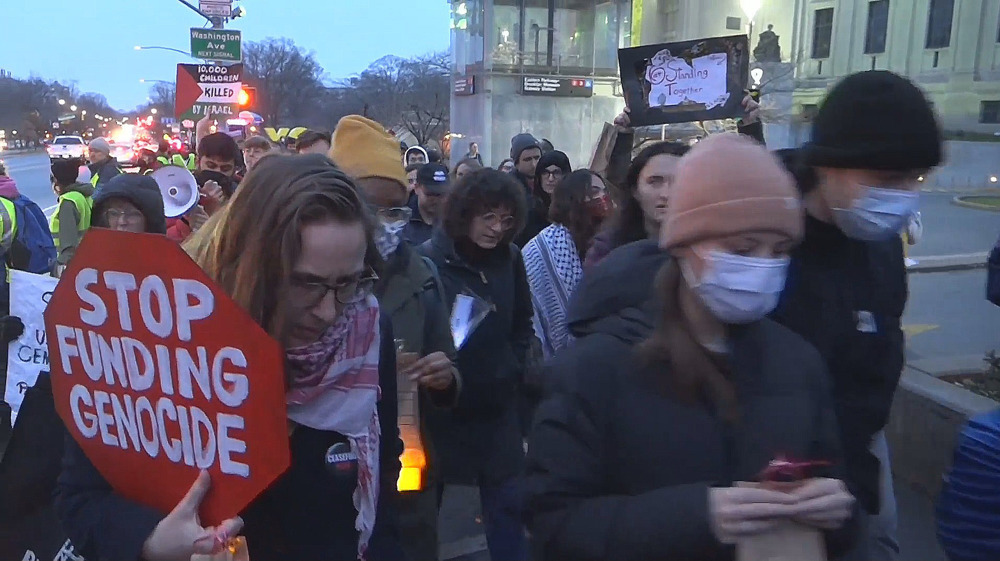
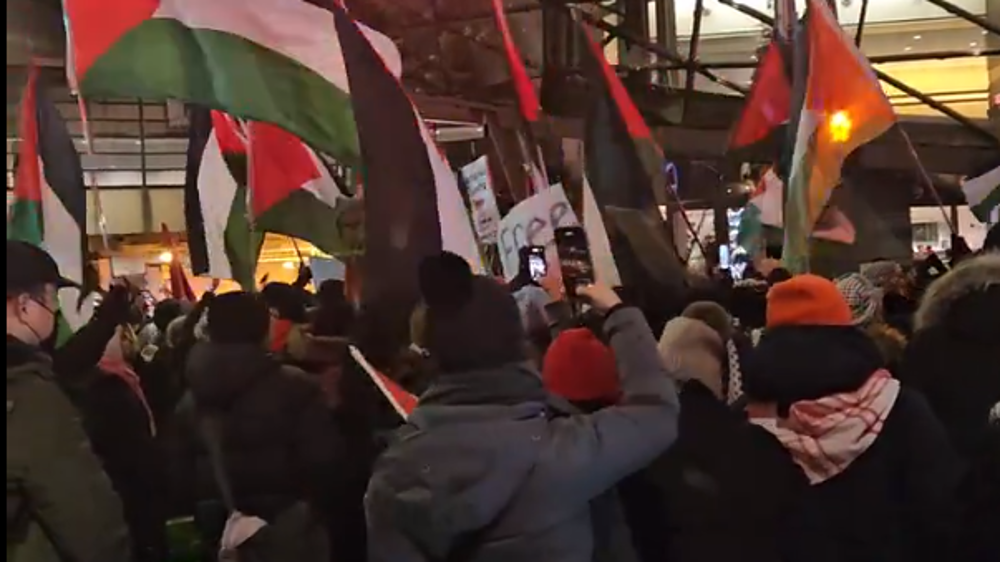

 This makes it easy to access the Press TV website
This makes it easy to access the Press TV website